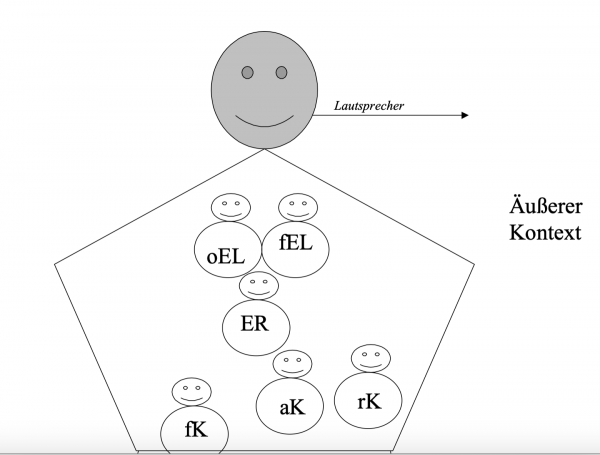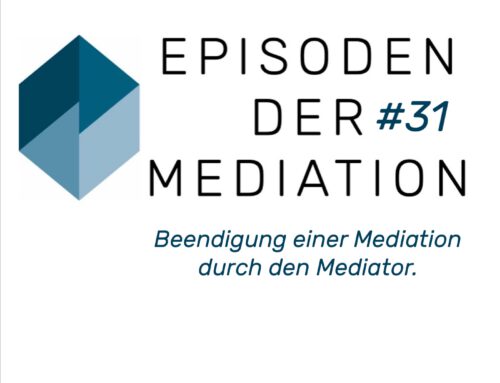Personality counselling with the concept of the inner team of ego states
What happens when the ego states of transactional analysis meet the idea of the inner team?
Günther Mohr
Introduction to the Inner Team
The inner team has Schulz v. Thun (1998) the various personality traits in a person that are relevant to an issue. Transactional analysis postulates in its Functional model a certain typology of inner personality traits that have an outward and inward effect. This can be easily combined.
The functional ego states of transactional analysis are a typology of the inner team.

Functional ego states in transactional analysis are…
- Ego states in their expression (functional model)
- oEL = orientating parent ego
- fEl = caring parent ego
- ER=adult ego
- fK=free child ego
- ak=adapted child ego
- rK=rebellious child ego
This didactic variant is usually easy to understand and saves detailed explanations in order to clarify the nature of the personality made up of sub-personalities. I visualise the individual functional ego states in the order starting with the free child ego, through the adapted child ego, the rebellious child ego, the two parent ego states to the adult ego.
The proposed Idea of imagining and visualising the ego states in a person has a long tradition.
- Mary Goulding (2000) speaks of "head dwellers".
- Hans Jellouschek (2000) speaks – of the "family in me" in relation to the structural-analytical model of origin –.
- Leonhard Schlegel (2000) has described in an essay the systemic therapy of the inner family according to Richard Schwartz compared with the TA ego state concept. The idea of the inner team of ego states suggests that they work together as parts of an organism in a similar way to organs. This represents a positive basic idea of each functional ego state and the possibilities of their interaction.
This gives you the advantage of being able to utilise everything that the Friedemann Schulz v. Thun idea of the inner team described above.
Applications of the model in counselling work
This concept leads to a whole series of questions that are addressed in the Personality counselling can be processed and reflected upon:
- In which situation does which ego state fulfil the function of „Lautsprecher“ to the outside world?
- Between which ego states do typical „innere Dialoge“ instead?
- What is the ego state of a person? „hidden“, reset, overemphasised etc.? Who doesn't get a chance to speak?
- Which one „Style of interaction“ has settled between the inner ego states? Brooding, nausea, being overexcited or indecisiveness as a state of mind?
- How is the „innere Führungsprozess“ organised? Are there democratic, participative or authoritarian decisions? Is there situational leadership? Can the inner states enter into a real dialogue? Who listens to these dialogues? Is a constructive dialogue forming? Determinator egothat can bring diversity into unity?
All in all, this offers great opportunities for creative visualisation in consulting.
This quickly gets even absolute newcomers to transactional analysis thinking about what they experience from these aspects. My observation is that the approach via the inner team is so catchy that you can very quickly use exercises to immerse yourself in individual ego states or to apply them to a specific problem solution, for example. In my experience, learners no longer need elaborate lists of behavioural descriptions of the individual functional ego states. It seems to be a Intuitive development of the individual expressive qualities to take place.
Overdrawing and one-sidedness of individual inner team members can then be presented as an extension on this basis. The degree of differentiation can be selected depending on how complex individual possible perspectives of the ego states are to be mentioned here. This makes it possible to add other aspects from the ego state concepts.
Further aspects of the ego states of transactional analysis in counselling
- In this way, you can Developmental psychological hypotheses for example, that the basic equipment of the human being is modelled here in the form of the Basic needs (recognition, stimuli, structure).
- In the visualisation, the free child ego state can reach a little „below the belt“ to indicate this aspect as well.
- With the parent ego states, one can refer to the connection between Orientation and caring with the value orientation and thus build bridges to other ego-state ideas.
- In the picture, there is the possibility of seeing the adult ego more in the manner of the situation-adapted moderator and mediator for internal and external impulses to be displayed.
- The presentation offers the opportunity to show inner relationship dynamics, for example the simultaneous internalisation of a parental attitude as a model and structure and one's own reaction to it, i.e. two ego states.
Further ideas for counselling with transactional analysis
Many other ideas can be linked to the concept of the inner team of ego states. The behavioural aspect of the functional model is very close to the experiential space of newcomers. The extent to which one refers to other ego state perspectives on this basis can be made freely dependent on how complex the map is to be.
One Variant in the metaphor is, in the representation of various internal instances of a inner parliament to speak, as the hypnotherapist Gunther Schmidt does. The parliamentary metaphor triggers more different inner images in the audience than the team metaphor. But this is certainly world sometimes as an illustration of internal factionalisation or power politics interesting. Schulz v. Thun's team metaphor goes further. On the one hand, it ties in with everyone's experience and also has the normative aspect that teamwork tends to have a positive connotation.
All in all, the metaphor of the inner team for the functional ego states appears to be quite easily digestible and nutritious food, which is just as helpful in counselling (coaching, supervision, mediation) as it is in counselling and coaching training.





Leave A Comment